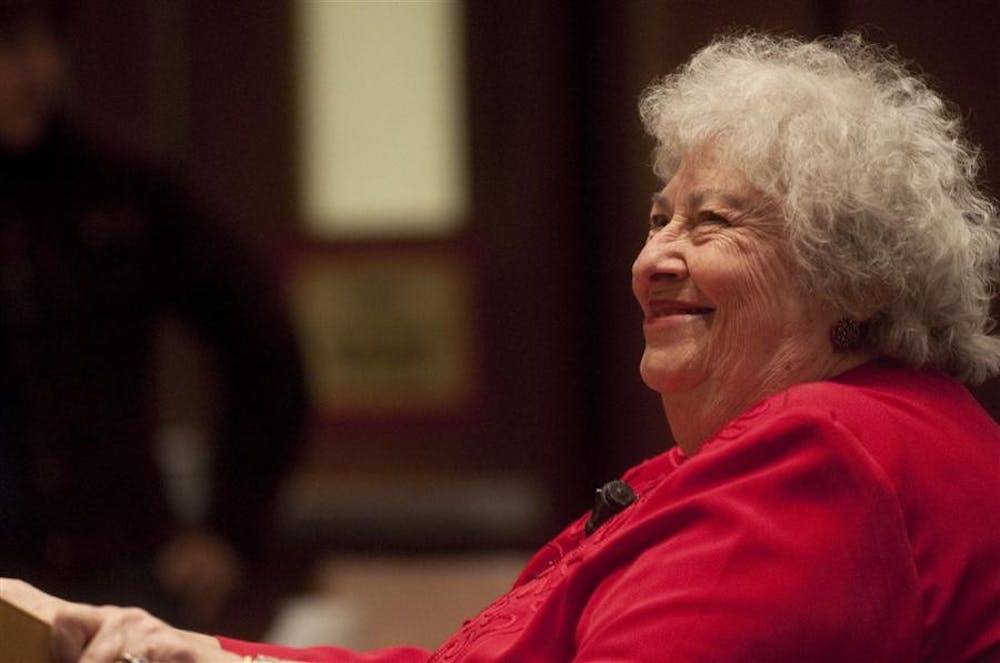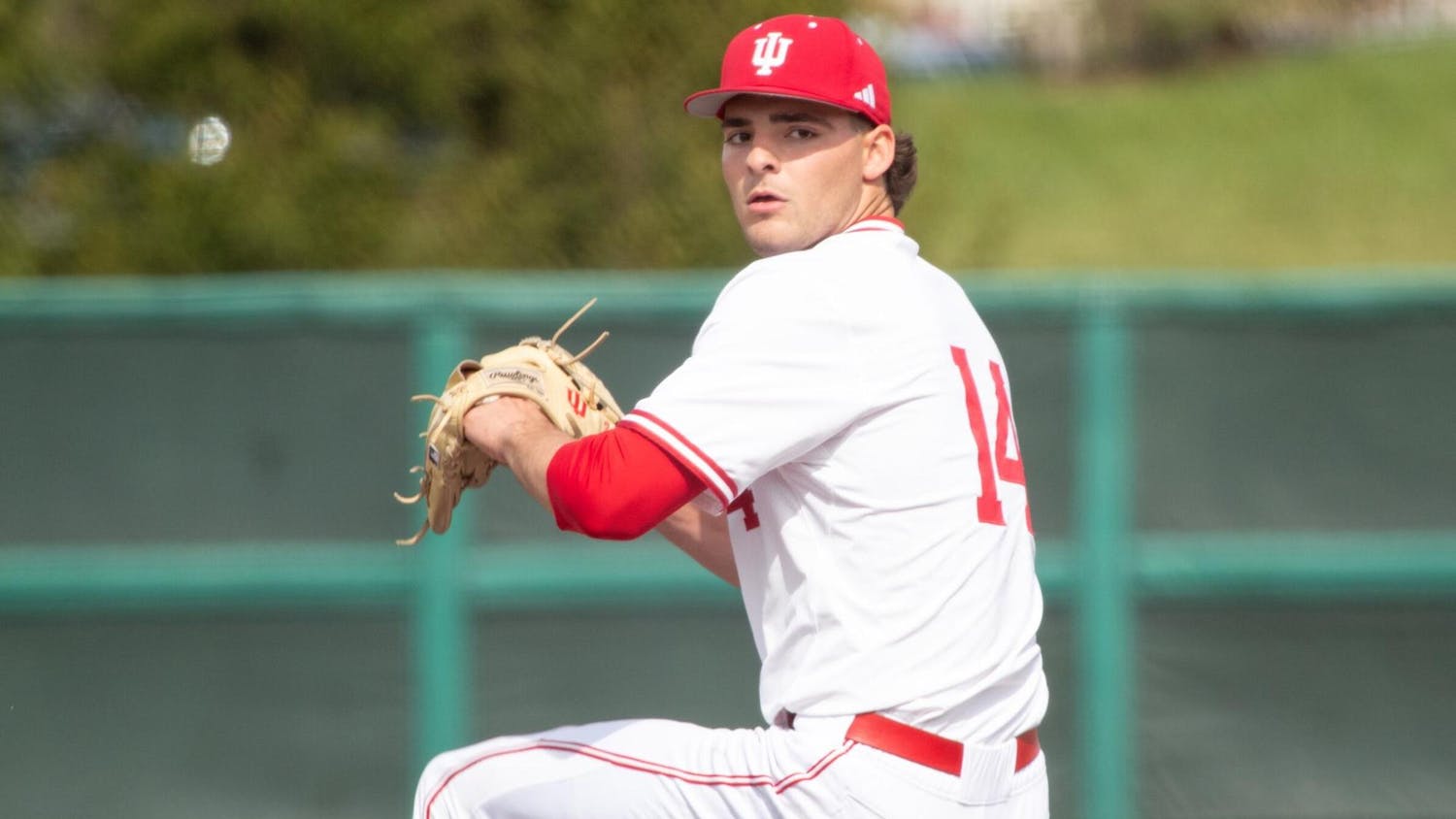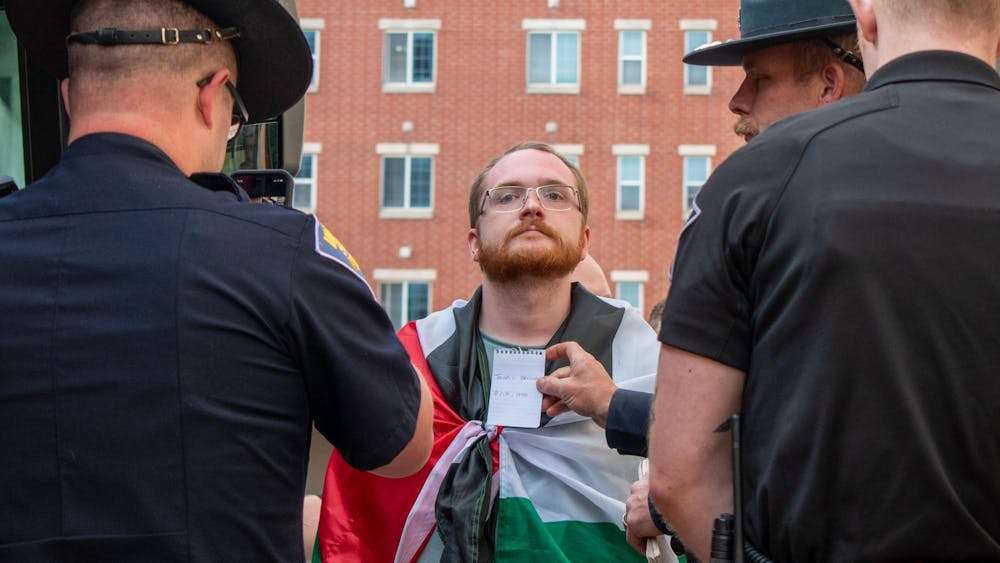It’s 1938 and Rachel Zimbler is a 10-year-old Jewish girl in Austria.
“I am going to ask you not to look at me as an 81-year-old lady, but as a 10-year-old,” she said while standing in front of a crowd of students in the Kelley School of Business, “because the events I am going to speak about happened to me when I was 10.”
Zimbler was a childhood survivor of the Holocaust during Kristallnacht. Thursday’s lecture was organized by the Helene G. Simon Hillel Center.
“Once upon a time, more than 71 years ago, my life and the life of Austrian Jewry changed drastically for the worse,” Zimbler said.
In March 1938 her life changed forever. She couldn’t play with her friends, take out books from the library or attend a public school.
It was these little changes that made Zimbler recognize things were changing for the worse.
“You couldn’t help but know it,” Zimbler said. “The kids I went to school with would spit on the ground and say, ‘Don’t let the Jews get ahead of us.’”
“The 10th of November 1938 was the beginning of the end of all Jewry in Austria and Germany. It was Kristallnacht,” Zimbler said.
“Kristallnacht” is the night of the broken glass. Jewish-owned shops and synagogues were attacked by the Nazi pogrom – a group of people committing violent acts against a particular group.
“It was so frightening for us as children,” Zimbler said. “We could feel that fright even though they tried not to show it. But it was there.”
Zimbler and her siblings went to their great aunt’s house to stay safe.
When Zimbler’s mother got to the apartment, there was a German seal on the door.
The synagogue, the center of Jewish life in Zimbler’s Austrian town, was up in flames.
The Nazi pogrom stormed into the synagogue and took and destroyed special religious items.
The beautiful stained glass windows were all broken.
The life-changing event of Kristallnacht remains a strong image in Zimbler’s mind to this day.
“So when, that I walked in the street, I could feel the crunch of that glass under my feet and I feel it to this day,” Zimbler said. “It’s just one of those things that just got to my heart.”
The day after Kristallnacht, Zimbler saw her mother looking for her father.
“Where is Papa?” Zimbler said. “What is happening to him?”
Papa was taken to Dachau Concentration Camp for 48 hours. Although he survived and rarely spoke of the experience, he frequently screamed at night.
By Dec. 10, Zimbler’s father got her and her brother on the “kinder transport” and went to Holland. “Kinder Transport” was a child rescue movement started by Quakers and other groups that would save children from Germany and Austria.
She had a positive experience in Holland even though the children made fun of her Dutch.
Zimbler came to America by boat and was fortunate enough to get to Brooklyn, N.Y. with a brother, mother and father. However, her aunt and cousin on her mother’s side did not survive the Holocaust.
Many of the audience members felt a personal connection to Zimbler’s story.
“As a Jew, I feel like I have to go to carry on the story of survivors,” sophomore Rafe Kaplan said. “I try to come out to all of these events because I feel obligated to tell everybody what happened.”
Zimbler recalls Holocaust

Get stories like this in your inbox
Subscribe





